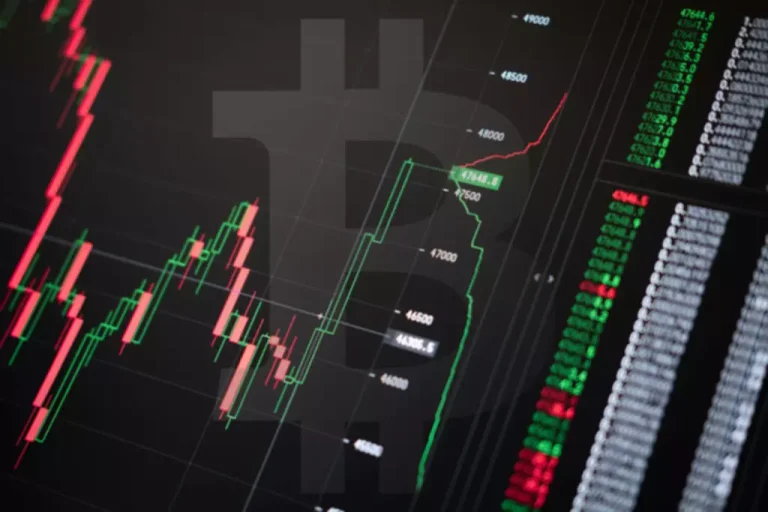Content
Market makers play an essential role in keeping financial markets fluid and efficient. They’re regulated entities, and they operate in a highly competitive market. Overall, and ideally, these factors combine to give investors a smoothly running market offering competitive prices. Market makers are essential components of financial markets, providing the necessary liquidity and efficiency for trading to occur smoothly. They help maintain order and stability in markets and serve as key players in ensuring that investors https://www.xcritical.com/ and traders can buy and sell assets with ease and confidence.
How Does Raydium Decentralized Exchange (DEX) Work?
This approach relies on supplying a given digital coin or currency pair rather than order-specific bid and ask rates. Liquidity providers work by supplying pools and venues where a certain asset or liquidity provider vs market maker multiple assets are highly available. Centralised bridges connect brokers with investment banks, banking institutions and financial corporations. On the other hand, decentralised liquidity involves DeFi pools and yield farms connecting exchanges and providing access to currency pairs. Meanwhile, less active and relatively illiquid assets will yield wider spreads and comparatively greater “passive profits” for the market maker. The main function of the market maker is to reduce volatility and facilitate price discovery in the stock market by providing a limited trading range on the security they make a market in.
Get Started: How to Connect Phantom Wallet to Raydium DEX
In recent times, seats have sold for as high as $4 million in the late 1990s and as low as $1 million in 2001. In 2005, seat prices shot up to $3.25 million as the exchange entered into an agreement to merge with Archipelago and became a for-profit, publicly traded company. Seat owners received $500,000 in cash per seat and 77,000 shares of the newly formed corporation.
Monetisation Strategies for Providers
- Market makers must operate under a given exchange’s bylaws, which are approved by a country’s securities regulator.
- This is the same amount of capital they must hold against a subprime mortgage loan.
- Although there are various types of brokers, they can be broken down into two categories.
- Indeed, many banks have exited client clearing in recent years, with the cumulative effect that we may now have more central counterparties than banks willing to provide access to those central counterparties.
- Many brokers can also offer advice on which stocks, mutual funds, and other securities to buy.
- This process increases pending trades in order books and makes transactions faster with minimum price changes.
The influx has been led by hedge funds and asset managers, with volumes from these client segments growing fourfold year-on-year. The bank has also made inroads with corporate clients, which have increased the amount of FX spot and options they trade with Natixis by 70% and 320% since 2021. Since 2021, Natixis has added around 2,300 new clients, roughly half of which are trading flow products. This year has seen a 23% increase in clients onboarded within global markets. It is a holiday shortened week but there has not been a shortage of headlines for investors to digest.
What Does Market Making Mean for the Markets?
The market maker allows for the free flow of transactions because it will take the other side of a trade even when it doesn’t have a buyer or seller lined up to complete the transaction immediately. Market makers are instrumental in fostering capital market growth and innovation by supporting companies in their transition to the public domain. During initial public offerings (IPOs), market makers serve as underwriters, assisting companies in setting the initial offering price and facilitating the distribution of shares to the investing public. Their involvement instills investor confidence, ensuring a smoother and more successful transition for firms seeking to raise capital through the equity market. This, in turn, promotes economic growth, job creation, and investment opportunities for the broader population. They must manage the inventory of assets they hold, which can be subject to market price fluctuations.
So, the idea was that this flow business is a business where we can be long volatility and benefit from the market movements and from heightened risk,” says Haize. Until 2005, the right to directly trade shares on the exchange was conferred upon owners of a limited number of “seats”. The term comes from the fact that up until the 1870s NYSE members sat in chairs to trade. In 1868, the number of seats was fixed at 533, and this number was increased several times over the years.
For all of these services, investors usually pay higher commissions for their trades. Brokers also get compensation based on the number of new accounts they bring in and their clients’ trading volume. Brokers also charge fees for investment products as well as managed investment accounts.

If the demand is high and supply is low, the price of the security will be high. Market makers are obligated to sell and buy at the price and size they have quoted. The low fees are based on trading volume, and since there’s no investment advice, employees of online brokers are usually compensated by salary instead of commission. Many discount brokers offer online trading platforms, which are ideal for self-directed traders and investors. Illiquidity occurs when it is not possible to sell an asset or exchange it for cash without a significant loss of value.
The specialist process exists to ensure that all marketable trades are executed at a fair price in a timely manner. For example, a crypto broker may offer fee reimbursement on trades settled by market makers or share accumulated transaction fees made from high-volume trading pairs. Some exchanges encourage less popular assets and provide monetary rewards for supplying liquidity over rare or newly listed instruments to increase their availability.
Crypto market makers provide and maintain liquidity in exchange for money. By enabling other traders to find matching orders much faster and making crypto assets more available, brokerage firms can operate with less volatility impact. Brokerage firms and exchange platforms integrate with crypto market making services to improve trading conditions, like low slippage and tight spread margins. Consequently, they can attract more clients to their software and utilise multiple liquidity connections. For what it’s worth, the activities of registered market makers are regulated by both the Securities and Exchange Commission (SEC) and the Financial Industry Regulatory Authority (FINRA). As a tech-driven trading firm, Optiver improves financial markets by providing liquidity to exchanges across the globe, making markets more efficient, transparent and stable.

The bid-ask spread is the compensation to the market maker for the risk it takes on. Banks with large balance sheets can accommodate sizable transactions, enabling them to make markets for various financial assets. For example, the world’s largest banks are core liquidity providers in the foreign exchange markets. Market makers operate and compete with each other to attract the business of investors by setting the most competitive bid and ask offers. In some cases, exchanges may have designated market makers (or specialists), each of whom is responsible for making a market in specific securities.
Market makers are typically large investment firms or financial institutions that create liquidity in the market. A core liquidity provider is a financial institution that acts as a go-between in the securities markets. These institutions buy large volumes of securities from the companies that issue them and then distribute them in batches to financial firms, which will make them available directly to retail investors.
On a practical level, market makers achieve this by continuously quoting buy and sell prices on the assets they hold in their inventory. Registered market makers are obligated to fill orders from their own inventory within range of these quoted prices, providing a certain level of both immediacy and transparency to these transactions. There’s no guarantee that it will be able to find a buyer or seller at its quoted price. It may see more sellers than buyers, pushing its inventory higher and its prices down, or vice versa. And, if the market moves against it, and it hasn’t set a sufficient bid-ask spread, it could lose money.